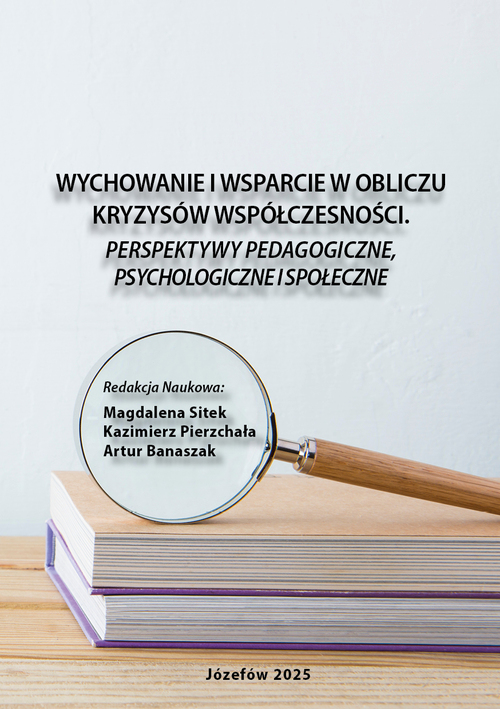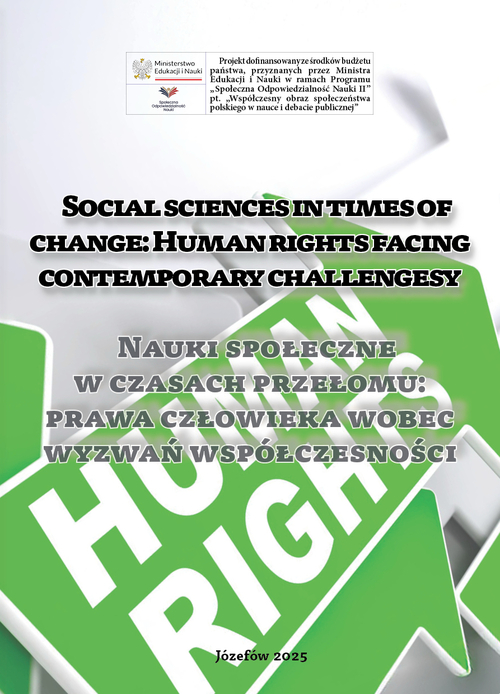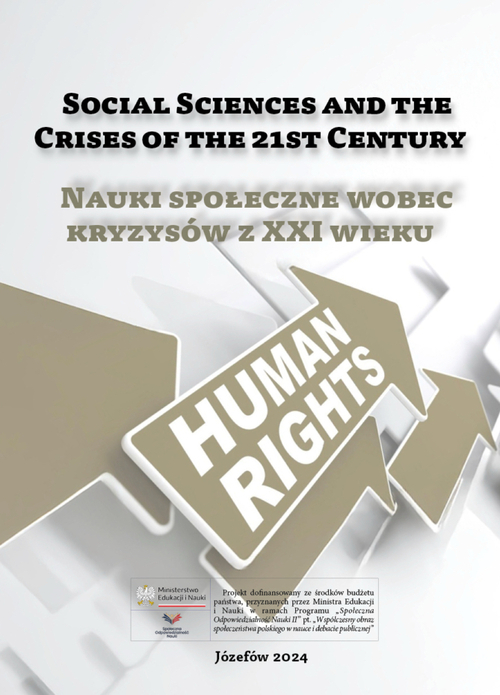Wydawnictwo
AWSGE
AWSGE

Akademia Nauk Stosowanych
WSGE
im. Alcide De Gasperi
WSGE
im. Alcide De Gasperi
Ethical code
Ethical Code for Peer Reviewers
1. Every form of external pressure during the process of review is prohibited and there should be no conflict of interest between referee and the author.
2. Both referee and the author should not remain in close personal or professional relationships (including family relations, institutional affiliations, collaborative research projects connected with the paper).
3. Reviewers should only agree to review manuscripts for which they have the subject expertise required to carry out a proper assessment and which they can assess in a timely manner.
4. Reviews should be conducted objectively.
5. Personal criticism of the author is inappropriate.
6. Reviewers should express their views clearly with supporting arguments and references as necessary and not be defamatory or libellous.
7. Reviewers should not allow their reviews to be influenced by the origins of a manuscript, by the nationality, religious or political beliefs, gender or other characteristics of the authors, or by commercial considerations.
8. Reviewers should declare any competing interests.
9. Reviewers should decline to review manuscripts in which they have conflicts of interest resulting from competitive, collaborative, or other relationships or connections with any of the authors, companies, or institutions connected to the papers.
10. Reviewers should respect the confidentiality of material supplied to them and should not discuss unpublished manuscripts with colleagues or use the information in their own work.
11. If a reviewer wants to pass a review request onto a colleague, they should get the editor’s permission beforehand.
References:
1. A Short Guide to ethical editing for new editors /COPE. 2011. 8 p. Available at: http://publicationethics.org/files/short%20guide%20to%20ethical%20editing%20for%20new%20editors.pdf
2. Hames I. COPE Ethical Guidelines for Peer Reviewers /COPE. March 2013. V.1. 5p. Available at: http://publicationethics.org/files/Ethical_guidelines_for_peer_reviewers_0.pdf
1. Every form of external pressure during the process of review is prohibited and there should be no conflict of interest between referee and the author.
2. Both referee and the author should not remain in close personal or professional relationships (including family relations, institutional affiliations, collaborative research projects connected with the paper).
3. Reviewers should only agree to review manuscripts for which they have the subject expertise required to carry out a proper assessment and which they can assess in a timely manner.
4. Reviews should be conducted objectively.
5. Personal criticism of the author is inappropriate.
6. Reviewers should express their views clearly with supporting arguments and references as necessary and not be defamatory or libellous.
7. Reviewers should not allow their reviews to be influenced by the origins of a manuscript, by the nationality, religious or political beliefs, gender or other characteristics of the authors, or by commercial considerations.
8. Reviewers should declare any competing interests.
9. Reviewers should decline to review manuscripts in which they have conflicts of interest resulting from competitive, collaborative, or other relationships or connections with any of the authors, companies, or institutions connected to the papers.
10. Reviewers should respect the confidentiality of material supplied to them and should not discuss unpublished manuscripts with colleagues or use the information in their own work.
11. If a reviewer wants to pass a review request onto a colleague, they should get the editor’s permission beforehand.
References:
1. A Short Guide to ethical editing for new editors /COPE. 2011. 8 p. Available at: http://publicationethics.org/files/short%20guide%20to%20ethical%20editing%20for%20new%20editors.pdf
2. Hames I. COPE Ethical Guidelines for Peer Reviewers /COPE. March 2013. V.1. 5p. Available at: http://publicationethics.org/files/Ethical_guidelines_for_peer_reviewers_0.pdf
We process personal data collected when visiting the website. The function of obtaining information about users and their behavior is carried out by voluntarily entered information in forms and saving cookies in end devices. Data, including cookies, are used to provide services, improve the user experience and to analyze the traffic in accordance with the Privacy policy. Data are also collected and processed by Google Analytics tool (more).
You can change cookies settings in your browser. Restricted use of cookies in the browser configuration may affect some functionalities of the website.
You can change cookies settings in your browser. Restricted use of cookies in the browser configuration may affect some functionalities of the website.










